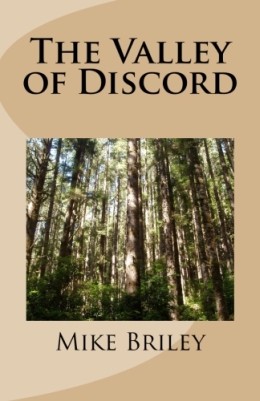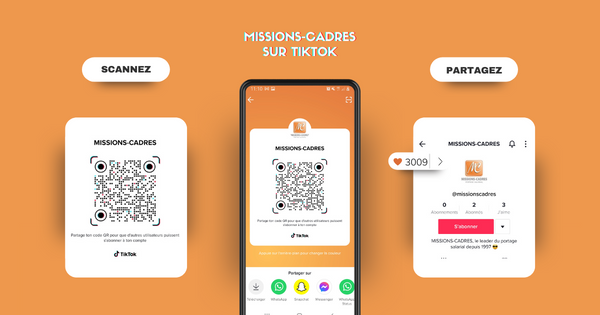Following a successful carrier as a biomedical consultant, Mike Briley now tackles a new challenge. Between consulting jobs as an independent using the services of an umbrella company, the scientist today is writing mystery novels.
Introduction
Throughout his carrier Mike Briley has dealt with facts. This semi-retired biomedical consultant has now added a new cord to his arc by turning from facts to writing fiction. With wit and enthusiasm, this novelist, and part-time consultant using the services of MISSIONS-CADRES, an umbrella company, explains his philosophy of writing and his relationship with the characters in his books. An auto-portrait of a man of science with an abundant imagination.
“ I have been writing for all of my professional life; from my biochemistry thesis in the UK in the early 1970’s, via basic research at the Pasteur Institute and elsewhere, the pharmaceutical industry in Paris and Castres, and finally as a biomedical consultant using portage salarial, I have written and published nearly 250 scientific papers and more than 10 medico-scientific books. “Facts – just the facts, Sir” as Sgt. Joe Friday from Dragnet would have said. In scientific writing there is no place for fiction or fantasy. Every statement has to be supported either by data, as graphs or tables of numbers, or a citation of some previously published experiment. Even opinions need to be fully substantiated by reference to the scientific literature. After over 40 years of factual writing I was thirsting to write fiction and my semi-retirement (I still do a few consulting jobs) a few years ago was the opportunity.
- Free to write whatever I like
Having had no training in writing fiction and with the euphoria of finally writing “whatever I liked” I poured words onto paper, creating characters, places and plots and sub-plots without much thought of how it would all work out in the end. I had read somewhere that writing a novel should consist of four phases; you introduce your hero, get him chased up a tree by a wild animal, then throw stones at him in the tree and finally get him down again safe and sound. It was this fourth phase that caused me numerous sleepless nights. I had been let my characters write the book but none of them knew the ending. Me neither. Ironically, it was here that my scientific training came in useful as I logically analyzed the situation that my characters had put me in and try to find a way out that was feasible and hopefully not too disappointing for my readers. I then had to check that all the “loose ends” had been tidied up. After about a year of writing and rewriting I finally finished my first book which was initially published as The Well. Later I removed most of the worst errors of youth (everything is relative) by heavily revising it and rewriting certain parts. It was republished as The Valley of Discord.
- The rush to the sequel
When I started this project I was far from convinced that I would be able to finish the book. Well, I did and I felt such a tremendous exhilaration so that without waiting to see whether it would be a best seller 😉 I immediately plunged into a sequel. After about a hundred pages I realized that this was not such a good idea. The global approach to The Valley of Discord had been “what happens when an ordinary guy gets into an extraordinary situation?” You can’t do a sequel from this. Ordinary guys don’t get into extraordinary situations over and over again unless they are detectives or something similar, in which case they are no longer just “ordinary guys”. So back to the drawing board.
- Write what you know about
So there I was, with a blank Microsoft Word document on my screen in front of me. I remembered something else I had read about writing novels. I think it was Hemingway who said “Write what you know about.” Good advice, but what did I know about? I knew what it was like to be a British ex-pat in South-West France but I had already exploited that in The Valley of Discord and I wanted to do something different. A life-long passion of mine has been sailing and I decided to write something based on my early sailing days while I was a student at university in the UK. It was certainly a subject that I knew well but I was worried that university life might have changed over the last 50 years. To be on the safe side, I therefore decided to set my book in 1967, exactly the time I was at university. This neatly avoided the problems that my souvenirs might be out of date. Incidentally it also helped the plot inasmuch as mobile phones and DNA analyses and so on did not yet exist. The story I wrote was so close to my personal experience (for the first part only I hasten to add – to understand what I mean by this you’ll have to read the book ) that I decided to write it in the first person. This second book was published as The Four of Us. Although I didn’t have a master plan from the beginning I was more wary this time of letting my characters lead me into blind alleys. Although the ending was a surprise to me I knew it would be one of several options that I had already envisaged.
- Opus 3 – a somewhat more control approach
Writing is like jogging – pain and exhilaration! Having written two books, there was no question of stopping there. I was hooked and immediately launched into my third opus. Following Hemingway’s advice I decided to use my experience of sailing together with living as an ex-pat in France as a background. I was then in the “what if” phase, searching for a plot. Sailing one day on a calm deserted sea I wondered what if an ordinary guy in his boat came across a girl on a drifting sailboard who was intent on committing suicide because of a problem she would not reveal. That was enough to get my literary cogs turning and in record time (less than a year) I produced Crime of Compassion. One of my beta-readers (a small group of people who critically read my early drafts) described it as a romantic mystery novel, which I realized it was, although it was never my intention to write such a thing. This was the book I enjoyed writing most so far and I feel great affinity for the hero, Tim. I have tried to think of a way of using him and the other characters again in a sequel but, as I’ve explained above, ordinary people don’t repeatedly get into exceptional situations. Nevertheless I’m still searching and it’s not impossible that Tim and his friends may find their way into a future book.
- Working title – 4th Book!
It will not, however, be in my next book, which is well under way with a publication date (optimistically?) planned for early 2017. For the moment its working title is 4th Book! What if an ordinary guy is driving through rural France blinding following his GPS when the device breaks down? He is lost. His only option is to keep driving until he recognizes a sign to somewhere he knows. What if he then comes to a village that he has never seen before but where the people greet him as if he is frequent visitor … Well that’s how it starts. At the moment I have no more idea than you how it will finish.
Just as the pleasure of travelling is not so much the destination, as how you get there, the pleasure of writing (for me, at least) is not so much the final product but the pain and exhilaration of watching the characters act out the plot and finding out what happens in the end! I just try to nudge the characters a little to keep some order and then in the final straight I take over and direct them to produce a satisfying ending.
Rereading the above, I may have given the impression that I don’t care whether my books are read or not. This, of course, is not the case. Readers and especially reader feedback, although sometimes painful, are important. I am always curious to know what readers think and feel. Is it what I intended? Or, as my beta reader who discovered an unintended “romantic mystery novel” in my book, does the reader experience something I had never intended – as long as it’s not boredom I think that’s great.
I hope I have whetted your appetite and you now are itching to read my books. If so, don’t let the cost dissuade you. The electronic version of all three books from Amazon will cost you less than 1€ each. As you can imagine I do not make my living from writing (!), I do it for the fun! Part of the fun is the feedback I get from you. So now it’s up to you…
I suggest you start by visiting my website for information on all my novels and direct links to buy them on Amazon and elsewhere. You will also find a free short-story.”
mikebrileybooks.com





